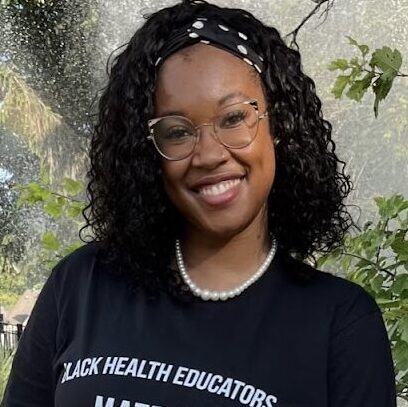Happy Pride Month, Nerds! 🏳️🌈🏳️⚧️⚧
Each day, we find ourselves on the receiving end of rhetoric that minimizes and even directly threatens the joy, safety, lives, and livelihoods of LGBTQIA+ folks. This, combined with the ongoing challenges to reproductive health rights, means that we could all use any emotional support we can come across. And who better to offer emotional support than doulas?
You read that correctly! Though they entered mainstream conversations in the 1980s — their use spurred on by a widespread push for women’s liberation — doulas have been around as beacons of comfort and advocacy (within and beyond clinical spaces) throughout human history. And just like their patients, doulas emerge from every walk of life and bring unique toolkits and lived experiences to their practice. Continue reading to learn more about these multi-talented professionals whose work across sectors and communities deserves celebration throughout this Pride Month and far beyond!
What is a Doula?
A doula is a non-medical professional responsible for offering physical, emotional, and educational support that is attuned to the richly diverse needs of people who are starting or expanding their families. Many doulas coach and support birthing people throughout labor and delivery, but they also often serve as liaisons between pregnant people and their care providers to ensure quality prenatal care. Some doulas are even specially trained to assist with various postpartum needs. Overall, doulas partner with pregnant people and their families/communities to contribute additional layers of emotional safety, information sharing, and continuity of care — all of which have the potential to improve birth outcomes.
Whether planning to give birth at a hospital, a birthing center, or in their own homes, it is as crucial as ever for birthing people to consider what it would look like to have a physically- and emotionally-present holistic care team throughout their pregnancy and postpartum journeys. While obstetricians and midwives have extensive and highly reliable medical training, meeting patients’ emotional needs — including advocacy for culturally responsive, gender-affirming birthing plans — is a task that doulas are specially equipped to handle.
A Brief History of Doulas in the United States
Doulas’ identities as non-medical professionals actually enhance their appeal to many people. Though existing for centuries in the form of community matriarchs and traditional carers, doulas gained more widespread attention with the start of the home birth movement of the 1970s. And with rates of c-sections spiking in the 1980s (which, understandably, frightened lots of birthing people who found the procedure to be very involved and invasive), doulas who were adept at keeping birthing people calm and informed throughout labor became fixtures in both home and hospital births. C-sections, induction of labor, and other medical interventions are often necessary; but when birthing plans start to unfold in ways that people did not quite want or expect, it is very helpful for someone outside of the medical team to offer language-accessible explanations, resources, and assurance that the safety of parent and baby are the utmost priority. In these situations, doulas can be invaluable.
What Are the Benefits of Having a Doula?
The benefits of having doulas present as coaches, cheerleaders, and compassionate clearing houses of information are stark: the CDC and the Journal of Perinatal Education reports that “[d]oula-assisted mothers were four times less likely to have a low birth weight baby, two times less likely to experience a birth complication involving themselves or their baby, and significantly more likely to initiate breastfeeding.” There’s a strong indication that some, if not all, of these improved outcomes are linked to doulas’ historically significant role in minimizing experiences of isolation, discrimination, and related trauma for birthing people.
Please stay tuned for more installments exploring the ways that doulas can be — and currently are — on the front lines of birthing equity and reproductive health justice at large.
With love and immense pride,
Those Nerdy Girls
Additional Resources:
The Historical Significance of Doulas and Midwives (Smithsonian Institution’s History of Doulas and Midwives)
The LGBTQ+ Community Deserves Access to Inclusive and Affirming Doula Care
LGBTQ+ Doulas Help New Parents Thrive, No Matter How They Identify
Doula Care Improves Health Outcomes, Reduces Racial Disparities and Cuts Cost
Impact of Doulas on Healthy Birth Outcomes


